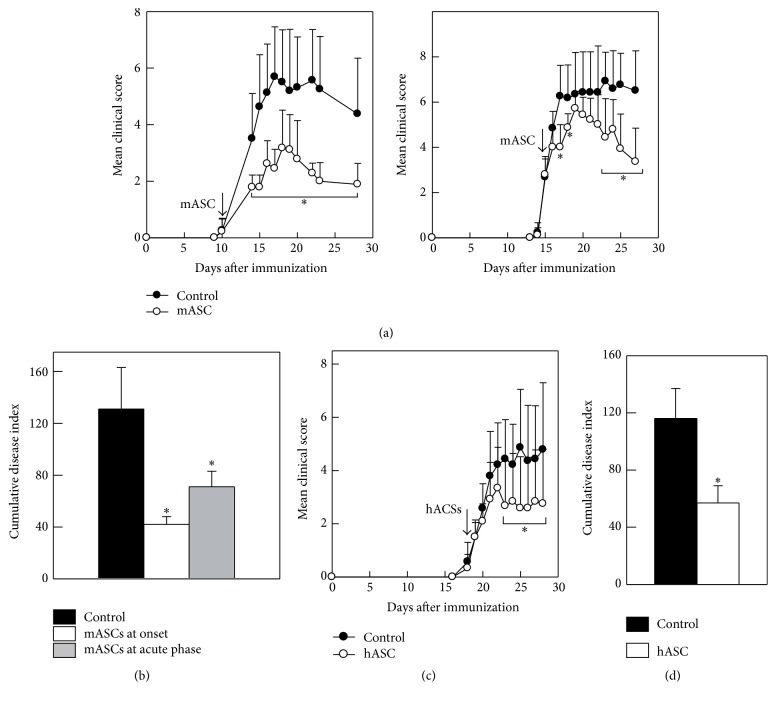Figure 2.
Allogeneic and xenogeneic ASC reduce EAE severity. Chronic progressive EAE was induced in C57Bl/6 mice by immunization with MOG35-55. Animals were injected intraperitoneally with PBS (control) or with hypoxia-expanded allogeneic mASCs (106 cells/mouse) either at the onset of EAE (day 11 after immunization) when the mean clinical score was 0.25 in the control group (n = 8 mice) and 0.22 in the mASC-treated group (n = 9 mice) or at the acute phase of EAE (day 15 after immunization) when the mean clinical score was 2.7 in the control group (n = 6 mice) and 2.8 in the mASC-treated group (n = 7 mice). (a) Clinical symptoms were scored daily in the group treated at onset (left panel) and at the acute phase of EAE (right panel). (b) Cumulative disease index is the sum of daily clinical scores observed between days 20 and 40. Results are shown as mean (SD). ∗p < 0.05 versus control. (c) Human ASCs ameliorate EAE. Mice with MOG-induced EAE were intraperitoneally injected with PBS (control, n = 7) or with hASCs expanded in hypoxia (106 cells/mouse, n = 6 mice) during the acute phase of the disease (arrow) when the mean clinical score was 1.5 in both groups. Clinical symptoms were scored daily. (d) Cumulative disease index is the sum of daily clinical scores observed between days 20 and 40. Results are shown as mean (SD). ∗p < 0.05 versus control.

